Deloitte reports 43% of life sciences companies using an #AI-powered CRM bettered processes that ultimately improved patient engagement. The difficulty is understanding which CRM platform leverages #AI technology across all modules.
IMPROVED ENGAGEMENT TOOLS ARE TRANSFORMING CX TO ITS BEST
Artificial Intelligence (AI) in life sciences has already established itself within the industry. Now it is time to implement AI solutions for a life sciences organization that has not yet begun this journey. One of the critical areas of opportunity where life sciences companies should consider and plan to implement AI initiatives is within their customer relationship management (CRM) systems. Life sciences leaders have told us that any next-generation CRM solution must be AI-powered to meet engagement, automation, and better-user experience goals for customers and sales representatives.1 According to Gartner, “Sixty-eight percent of service leaders indicate that bots and virtual customer assistants (VCAs) will be more important in the next 2 years.”2
As new technologies are introduced to outdated customer service models and legacy CRM systems, sales teams that are used to proprietary and customized systems were disrupted; however, the advantages of AI outweigh the challenges for pharma and biopharma.
When we asked the management of several global life sciences companies what factors would make them switch CRMs, they pointed out developing a partnership with a vendor is the best approach to avoid growing pains and disruption. Both life sciences organizations and their strategic vendors need to take on ownership of this strategic goal and form a 50/50 partnership to develop and deploy an innovative solution that could genuinely transform customer engagement and lead to better customer experiences. A partner like Exeevo is committed to CRM success and has an entire network of life sciences experts with the talent, knowledge, and expertise in Microsoft Dynamics 365 (and all your cloud needs) ready and waiting to help, advise, and guide you.
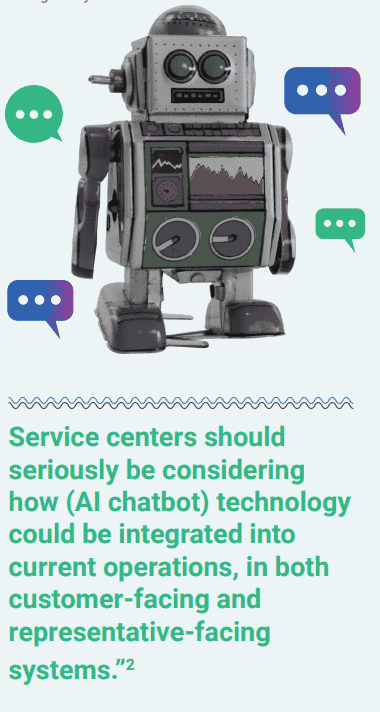
AI EMERGING GARTNER CLIMBING AND SUMMITING THE HYPE CYCLE
With AI’s rise in influence and its inevitable application, it does not matter if you choose to take an aggressive, large-initiative deep dive type of approach or the one that is more tactical and specific. It is time to seize the moment and start planning your AI roadmap, because, like it or not, AI is here to stay.
If you have been watching the Gartner Hype Cycle, you would have noticed that most of the existing AI targets are rapidly climbing the “Innovation Trigger” slope.3 Some AI capabilities like “Explainable AI” have summited the “hype cycle peak of inflated expectation” and are advancing to position themselves as a must-have technology that will prove transformative to businesses.2 According to a recent Gartner survey, C-suites are the steering force behind AI projects, “with nearly 30% of projects directed by CEOs,” and a Deloitte report found that 43% of survey respondents reported that AI implementations result in making processes more efficient.4,7 Therefore, it should come as no surprise that business leaders are the ones who see the future and are taking the reins on AI projects. This leadership level in the driver’s seat means more acceleration for adopting and investing AI solutions.
LIFE SCIENCES AHEAD OF THE GAME
When we look at recent and past AI life sciences projects, definite and unsurprising areas, clinical research, and drug discovery, emerge at the forefront. Given the massive investments in precision medicine and the desire to use outcome-based models, it is only logical to find that most larger AI initiatives have their genesis within these two areas. Life sciences companies that can efficiently leverage AI techniques, such as
machine learning or deep neural networks (DNN) and the Internet of Things (IoT) will see advancements in sales, customer relations,
and marketing efforts, as well as in areas such as training and direct customer interaction with personalized devices and
services. Therefore, a top priority should be embedding AI-driven advanced analytic insights for sales, marketing, research, and
customer service.
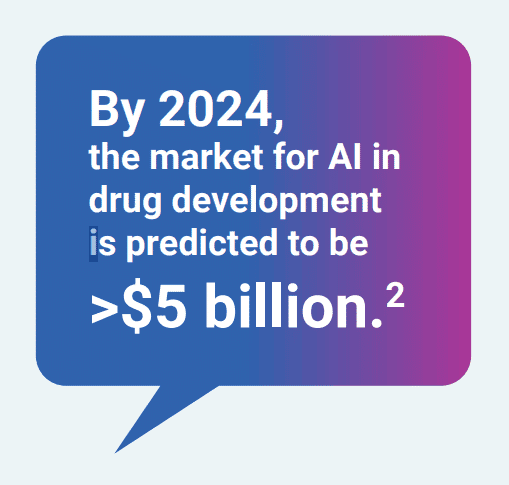
LEVERAGING AI TECHNOLOGY IN TODAY’S SALES AND MARKETING STRATEGIES
In other industries, early adopters of advanced AI techniques (such as machine learning and chatbots) have reaped benefits when seamlessly delivering personalized and unique experiences across their customer channels. AI thrusts CRMs into a new and thoroughly modern era by creating growth opportunities that delight customer-facing teams and customers alike.
With the omnipresence of digital tools, having information at their fingertips is something that customers generally expect. Sales and medical professionals can implement digital information available across these new tools and no longer need to rely on old-fashioned methods of managing customer relationships. This provides an opportunity to save money, for instance, by coordinating face-to-face meetings to gather data. Rich customer data available in AI-based CRMs facilitate connection to sales data, which are the pulse of new and dynamic customers. Challenges, both planned and unplanned, like the COVID pandemic and lockdowns, have caused life sciences companies to accomplish more with less as salesforce headcounts are expected to fall.
Implementing AI-powered CRMs allows life sciences companies to meet those challenges by being adaptable. A good example of this was having to embrace and facilitate remote workers to interact with both staff and patients.5

THE MOST NATURAL USE OF AI
Although the benefits of data-driven customer experiences are clear for companies of all sizes, the ability to finance, research, and develop such systems remains out of reach for most. Therefore, one of the most efficient and reliable entry points for implementing AI-powered solutions is adapting a CRM with built-in AI capabilities. Sales and marketing teams stand to gain the most from readily available insights while interfacing with customers. Having AI-powered on-demand data on research, patients, sales, and operations will allow companies to eliminate the complexities of in-person meetings and lengthy patient feedback loops to gain insights.
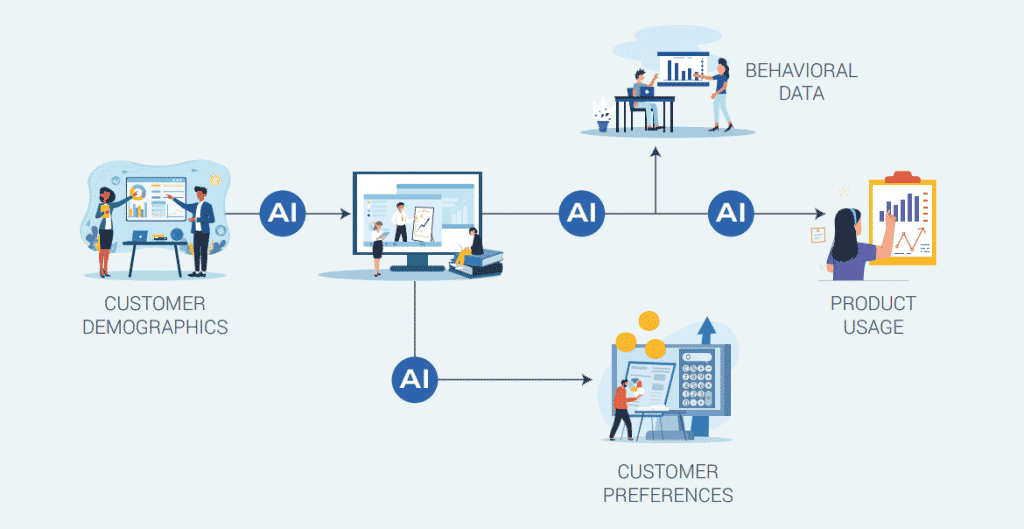

AI’S IMPACT ON A CUSTOMER’S JOURNEY
The impact of AI on a customer’s journey can be significant. An AI-based CRM captures rich, diverse customer touchpoints instantaneously and delivers insights to teams that can gain the information they need to personalize sales, marketing, and customer success experiences. The vast amount of data generated via different systems needs unification to allow for a single view of a customer. An AI-based CRM with access to all customer interactions can help plan and execute the next steps to further bind customer relationships, via sales, marketing, or training initiatives. That way, customers get exactly the information or service that they need and when they need it. This alone will account for sales, marketing, and productivity boosts, not to mention customer success.
CAPTURING A CUSTOMER’S JOURNEY
Common data models are vital to building an AI system. They can capture and analyze data from tweets, emails, phone calls, content consumption, and in-person visits to deliver deep insights on how to move your customers through the sales funnel. Once the customer is earned, AI systems can continue to improve customer relations using personalized customer service, therapy delivery, and optimize cell and gene therapies at scale. The data gathering from client-facing and field operators will deliver key insights to different functions of the business.
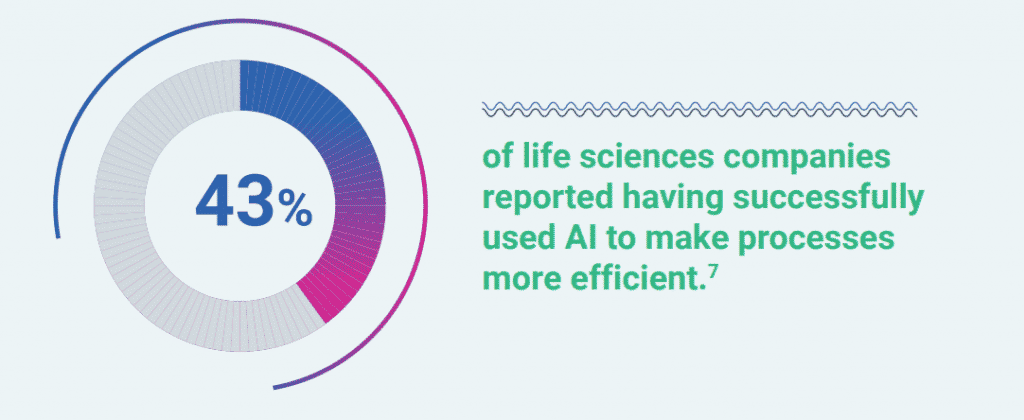
Investment in CRM with modern intelligence fits into the fabric of customer engagement:
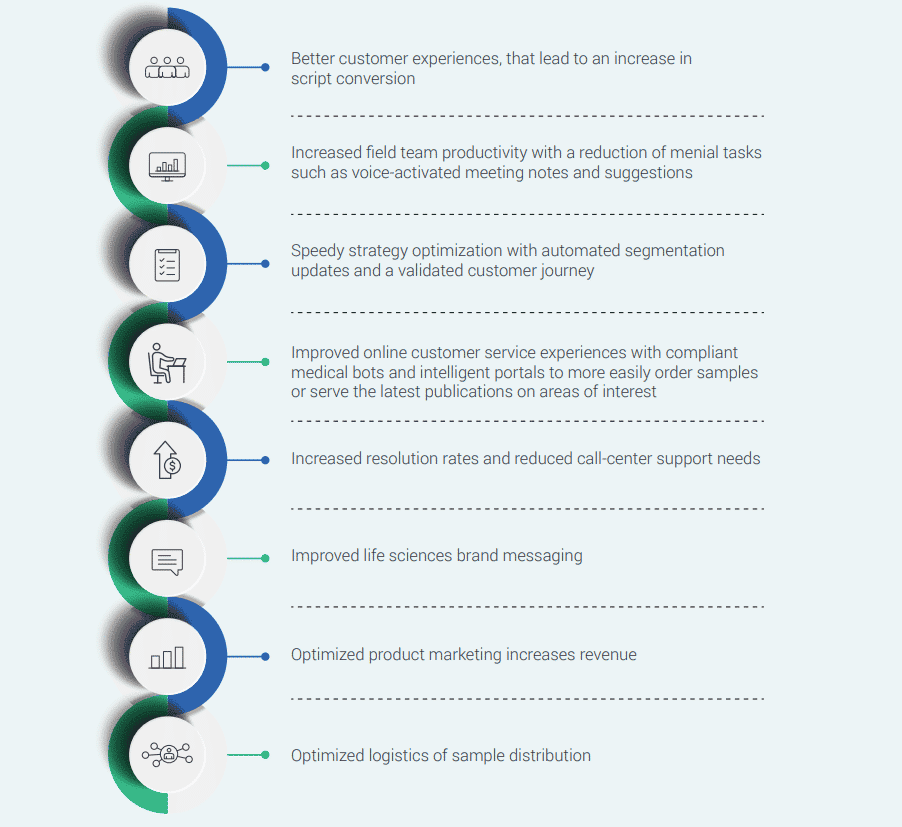
HOW CRM VENDORS ARE ADAPTING TO THE CHANGING CX
CRM solutions continue to reach new levels by introducing AI-advanced system features that are versatile, intuitive, productive, and insightful. Tools such as AI-powered assistants can help sales teams plan their activities and provide a more efficient experience to healthcare providers (HCPs). HCPs want a better connection to their omnichannel end users. The faster you respond to customers, the more likely they will have a positive view of your brand and products. Because customers appreciate and demand a rapid response. An AI-powered CRMs enable instant messaging and response to customer inquiries.AI chatbots can respond as a live person would to personal messages, providing customers with responses and information at the speed needed. HCPs gain insights on how to utilize customer data as AI chatbots can constantly learn and adjust their answers.
Microsoft can provide tightly integrated enterprise business applications with their CRM platform and Dynamics 365 to deliver insights and productivity across systems and other well-known applications such as Office 365, Power BI, and Teams. Armed with these tools, employees are empowered to collaborate and innovate across departments while serving organizational goals.
CRM vendors such as Microsoft also deliver on enterprises’ demands that are scalable, reliable, and secure solutions for private, public, and hybrid cloud infrastructures housing the huge troves of customer data gathered.
A move to a modern CRM is valid, but many enterprises and small and medium-sized enterprises (SMEs) need to measure and establish return on investment ( ROI ) to make this vital and complex shift. Legacy CRM systems are reported to have an ROI between $7 and $8 and modern CRMs such as Dynamics 365 have an ROI between $16 and $17 per dollar spent as per the Nucleus research.8 This increase can be attributed to the platform leveraging AI solutions, robust cloud computing, unified business applications suite, automation, and productivity.8
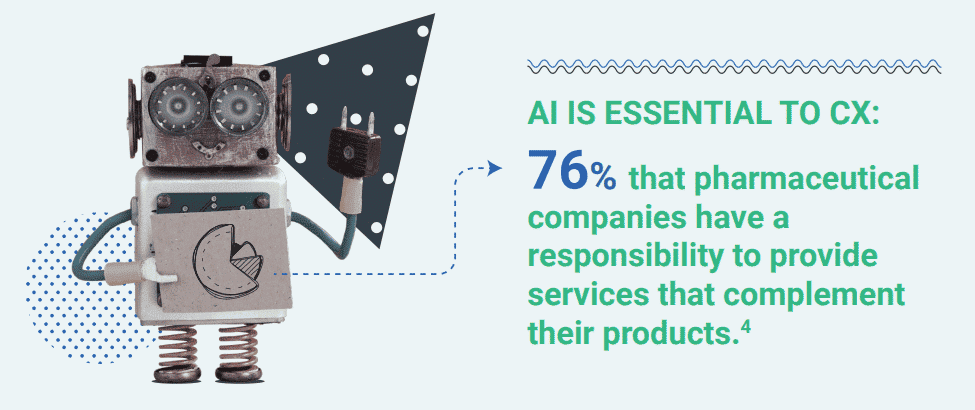
AI AS A KEY DIFFERENTIATOR FOR YOUR LIFE SCIENCES CUSTOMER ENGAGEMENT TOOL
Today, life sciences companies using AI-based CRMs have seen the writing on the wall and have broken away from the market to differentiate themselves in the eyes of HCPs and patients. Some of the AI-based features include conversational assistants for remote sales teams, customer engagement tools such as bots for customers’ inquiries, machine learning for medical research, and content
optimization and predictive modeling to identify customer interests for field force and research.
Learn more about the unique advances in AI capabilities brought together by the Exeevo-Microsoft strategic alliance. Connect with us for an overview.
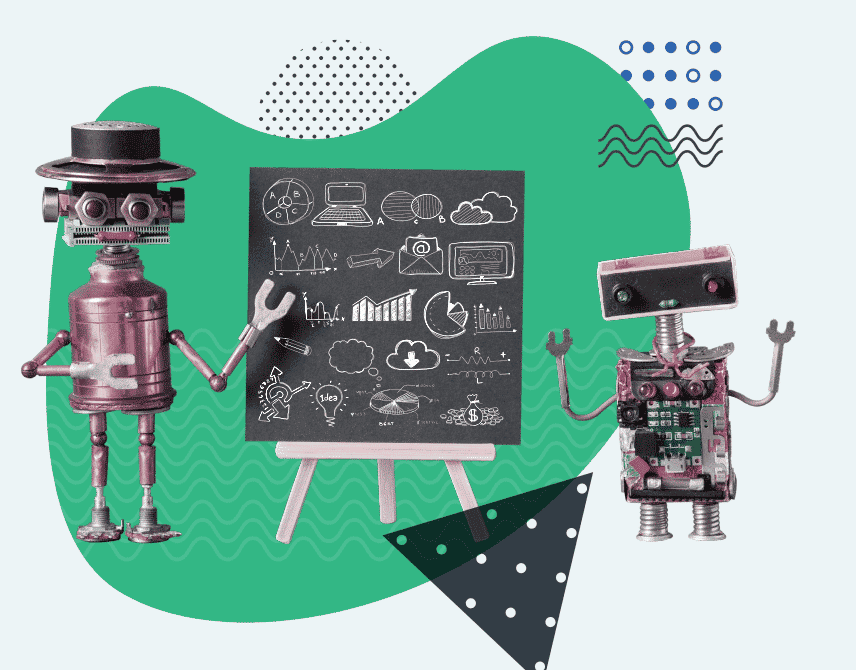
REFERENCES
- The rise of AI in life sciences. https://content.exeevo.com/rise-of-ai-in-life-sciences.
- Bots gain importance in Gartner service technologies bullseye. https://www.gartner.com/smarterwithgartner/bots-gain-importance-in-gartner-service-technologies-bullseye/.
- 5 Trends drive the Gartner hype cycle for emerging technologies, 2020.
- 2 Megatrends dominate the Gartner hype cycle for artificial intelligence, 2020. https://www.gartner.com/smarterwithgartner/2-megatrends-dominate-the-gartner-hype-cycle-for-artificial-intelligence-2020/.
- This CTO says AI technology is transforming the pharmacy industry in time to battle the pandemic.
- How can pharma take advantage of AI?
- ROI revealed: Microsoft Dynamics 365 delivers $16.97 for every dollar spent.
